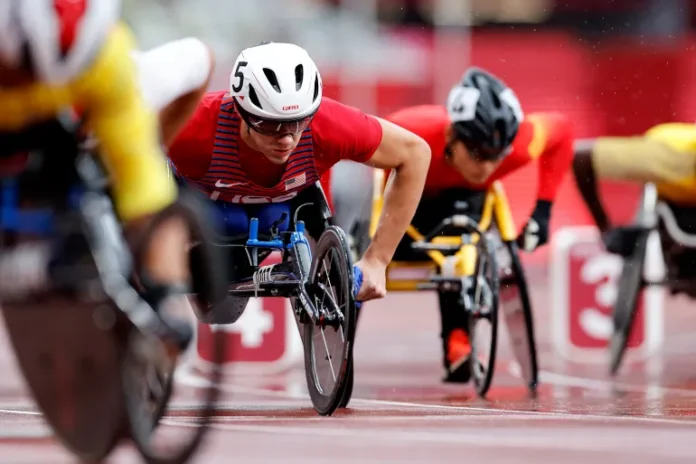
The Paris Paralympic Games, celebrated for their extraordinary athletic feats and groundbreaking performances, have once again brought disability into the limelight.
Over 12 days, the nation marveled at the strength, skill, and courage of athletes from around the world, momentarily shifting the narrative from one of deficiency to one of collective celebration.
However, as the Games conclude, questions remain about whether this newfound visibility will lead to lasting change for the 12 million disabled individuals in France.
Alexis Hanquinquant, a double gold medalist in Paralympic triathlon and the French delegation’s flag-bearer, lauded the Games for creating “a new general awareness” and fostering “much greater inclusion.”
The Games, he argued, have demonstrated that disability should be celebrated for its unique achievements rather than perceived merely as a limitation. This sentiment was echoed throughout the event, reflecting a shift in public perception from pity to admiration.
Yet, despite the enthusiastic praise and heightened visibility, the crucial question remains: Will the Paralympics translate into tangible improvements in the lives of disabled individuals beyond the sporting arena? The historical context reveals a more complex reality.
Historically, events such as the “wooden leg race” of 1895 and early post-war competitions have often been framed by medical perspectives that emphasize disability as a deficit rather than an aspect of human diversity.
Sociologist and political scientist Pierre-Yves Baudot, co-author of Handicap, a Political Cause, argues that the impact of the Paralympics on societal attitudes might not be as profound as hoped.
He critiques the notion that changing the way able-bodied people view disability will fundamentally alter the status of disabled individuals.
Baudot suggests that true progress depends on how disabled individuals perceive themselves, a perspective that remains fraught with challenges. These include barriers in mobility, education, employment, and housing.
Despite the inspiring performances at the Paralympics, translating this positive shift into everyday life proves challenging.
Wheelchair tennis champion Michaël Jérémiasz, reflecting on his own struggles, emphasizes that athletes are not “superheroes” and that disability remains a leading cause of discrimination cases in France.
His comments highlight the ongoing gap between the public’s perception of disability and the lived reality of many disabled individuals.
Moreover, while the Games have provided a platform for showcasing the capabilities of disabled athletes, this heightened visibility does not automatically address the systemic issues that hinder disabled people’s full participation in society.
The challenge lies in ensuring that the momentum gained during the Paralympics translates into concrete policy changes and societal attitudes that recognize and address these barriers.
In summary, while the Paris Paralympic Games have undeniably elevated the discourse on disability and showcased remarkable athletic achievements, the true test lies in whether these moments of “enchanted interlude” will lead to enduring change.
As France moves beyond the celebrations, the focus must shift towards addressing the persistent challenges faced by disabled individuals and ensuring that the newfound awareness fosters genuine and lasting inclusion.
This article was created using automation technology and was thoroughly edited and fact-checked by one of our editorial staff members